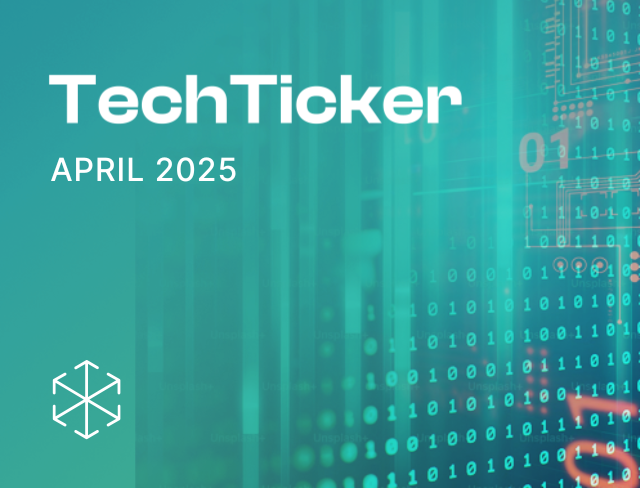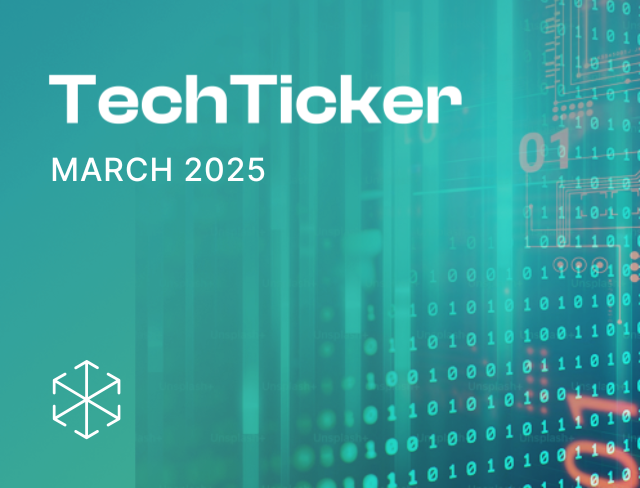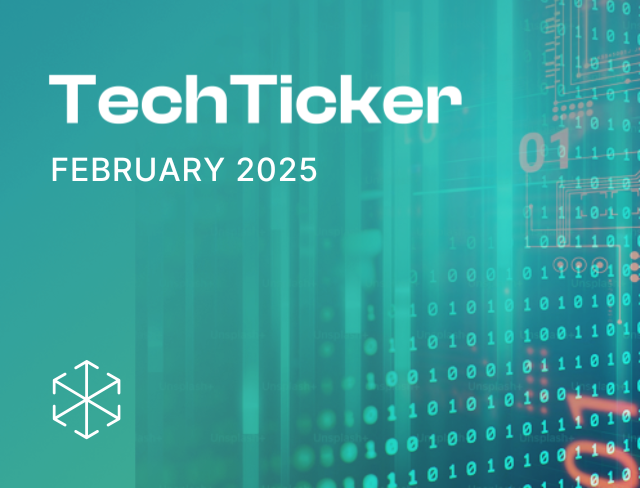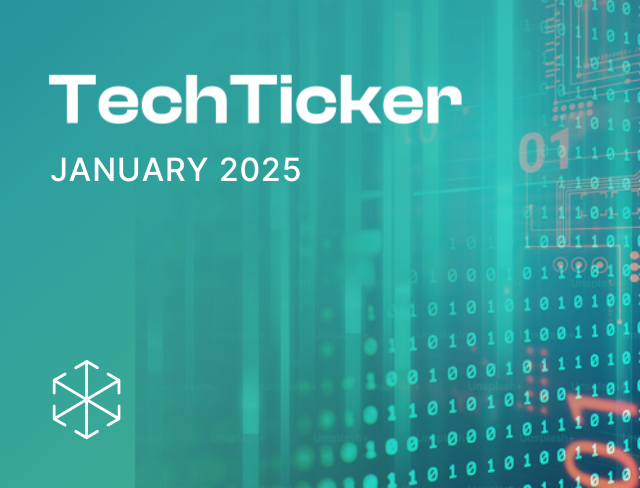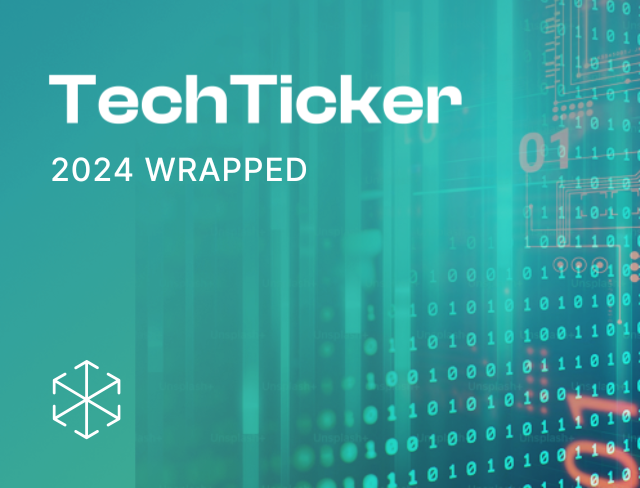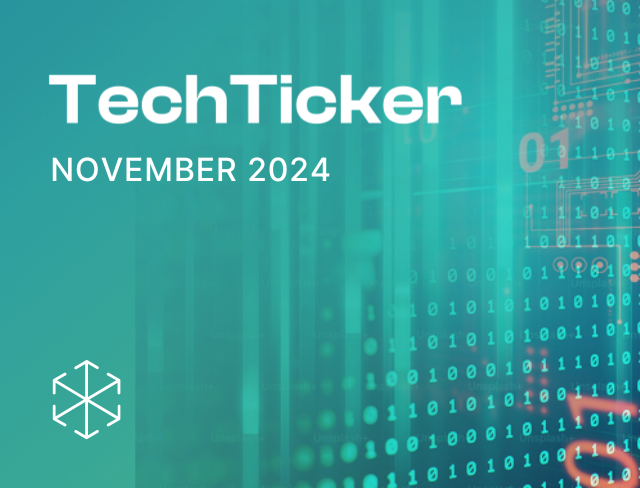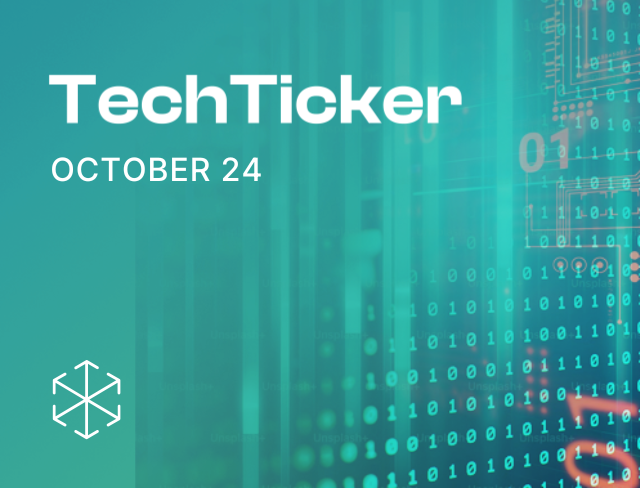Welcome to our Tech Ticker! Here are the latest developments from the tech-policy space in India and around the world.
Spotlight
The Telecom Regulatory Authority of India released its recommendations on cloud services, suggesting that a government registered industry body be set up to regulate cloud service providers in India. Per the telecom regulator, the department of telecommunications may create the first industry led body and require all cloud service providers to register with it as members. It also advised that telcos should not share telecom infrastructure with unregistered cloud service providers. On the other hand, it suggested that OTT communication platforms such as WhatsApp, Viber, Skype, etc. should not be subject to regulations at the moment. Stating that market forces should be allowed to respond to the situation, it dismissed the need for any intervention on privacy and security related issues of OTT services at the moment. For context, calling for ‘one service, one rule’, telcos had earlier demanded that OTT players be brought under a regulatory framework as well.
Meanwhile Lt. Gen Rajesh Pant (retd.), India’s national cybersecurity coordinator, indicated that the National Cybersecurity Strategy may be released in October 2020. The strategy, currently awaiting cabinet approval, aims to strike a “delicate balance” between national interests and international obligations.
In a bid to promote ‘Make in India’, the government revised the public procurement rules allowing government departments to increase the minimum local content requirements for local suppliers. It also fleshed out the principle of reciprocity, per which entities of foreign countries restricting the participation of Indian companies in their government procurement procedures will not be allowed to participate in Indian government tenders (except as allowed).
Facebook moved the Supreme Court against the summons issued by the Delhi Legislative Assembly’s Peace and Harmony Committee. This comes after Ajit Mohan, Vice President and Managing Director of Facebook India, refused to appear before the committee which is exploring the company’s alleged role in the 2020 Delhi riots. In its petition, Facebook questioned the Legislative Assembly’s powers to compel the appearance of non-members to depose. While the Delhi government argued that Mohan was only called as a witness and without the threat of coercive action for non-appearance, the Supreme Court directed the Assembly to not hold a meeting on the issue until the next date of hearing.
Data protection
The Personal Data Protection Bill is likely to be tabled in the budget session of parliament next year. This comes after the joint parliamentary committee examining the PDP Bill received an extension to furnish its report by the second week of the winter session which would be held around December 2020–January 2021. This is the second such postponement; the report was initially due by last week of the budget session and then by the monsoon session, but the JPC was unable to meet due to Covid-19 between March and July 2020. Also, the RBI reportedly sought exemption from the PDP Bill for its regulatory, policy and supervisory functions. Urging the government to keep ‘financial data’ out of the scope of ‘sensitive personal data’, the RBI argued that the data retention provisions under the PDP Bill may conflict with its payment systems’ data localisation norms.
In other news, the central government is reportedly working on a policy which prohibits mobile apps from collecting data on its users ‘beyond their area of functioning’. This move comes at the heels of increasing concerns around the data handling practices of many tech companies, the recent surge in cyber-attacks in India, and data thefts at the hands of popular mobile apps.
Artificial intelligence
The ministry of planning revealed that the government is examining a draft cabinet note on the implementation of the NITI Aayog’s National Strategy on AI released in 2018. While the national strategy was conceived by the NITI Aayog, the MeitY will be ‘steering’ the strategy. This announcement is relevant in light of the ongoing turf war between the MeitY and the NITI Aayog on AI thought and policy leadership in India. Also, Tamil Nadu became the first state in India to release its ‘Safe and Ethical Artificial Intelligence’ policy, which seeks to provide a road-map for government adoption of AI solutions in the state.
Intermediary liability
BJP MP Tejasvi Surya urged the government to repeal Section 79 of the Information Technology Act, 2000, arguing that the provision which guarantees safe harbour protections to intermediaries in India, is ‘unconstitutional’ and ‘ultra vires’ the Act. In parliament, he argued that the IT (Intermediary Guidelines) Rules, 2011 empowered “private foreign enterprises performing essentially a public function to act as censors of free speech without government oversight, thus effectively and severely impacting safeguards of fundamental right to free speech”.
In a bid to curb harmful content on social media platforms, Twitter, Facebook and YouTube, struck a deal with global advertisers (represented by the World Federation of Advertisers). Per the agreement, a common set of definitions for hate speech/posts and harmonised reporting standards will be adopted by the platforms. The move is expected to give advertisers more control over the kind of content their ads are placed next to. This comes after major advertisers had suspended advertising on Facebook as part of the #StopHateForProfit campaign, questioning Facebook’s efforts to restrain hateful content on the platform.
Online content
17 Indian online curated content platforms, including Netflix, Amazon Prime, and others, adopted the Internet and Mobile Association of India’s ‘Universal Self-Regulation Code’. And soon after, the ministry of information and broadcasting refused to support the code. In a letter to the industry body, the ministry flagged the code’s lack of an independent third-party oversight mechanism, a well-defined code of ethics, and a clear list of prohibited content as the reasons for its displeasure. This comes after the MIB in parliament dodged a question on the government’s plans to regulate streaming platforms, and observed that “content over internet, including Over The Top (OTT) Platforms are covered under the Information Technology Act, 2000”. Interestingly, the MIB in response to a similar parliamentary question posed in March 2020, indicated that it had called for a meeting of OTT platforms to help formulate a self-regulatory code.
Netflix released its investigative docuseries ‘Bad Boy Billionaires’ amid a legal battle in India. This comes after a district court in Bihar set aside its own stay order stalling the release of the docuseries. However, one of the episodes on Ramalinga Raju, a software mogul, is still under challenge in the High Court of Telangana. Raju, in an application before the high court, has urged Netflix to pre-screen the episode before its release.
Telecom
P.D. Vaghela replaced R.S. Sharma as the telecom regulator’s chairperson. Earlier, at an ITU-APT Foundation event, Sharma advocated for an ‘open sky policy’. He said that such a policy will help leverage global low-earth orbit satellite systems to make up for India’s satellite capacity shortfall and deliver affordable broadband services in India. At the same event, R. Umamaheswaran, Scientific Secretary at Indian Space Research Organisation mentioned that the government’s move to open up the space sector for private participation was not aimed at privatising the national space agency. It was to help the agency meet its objectives, subject to ‘national safety and security and protecting natural resources’.
That’s all for this edition, see you in November!

